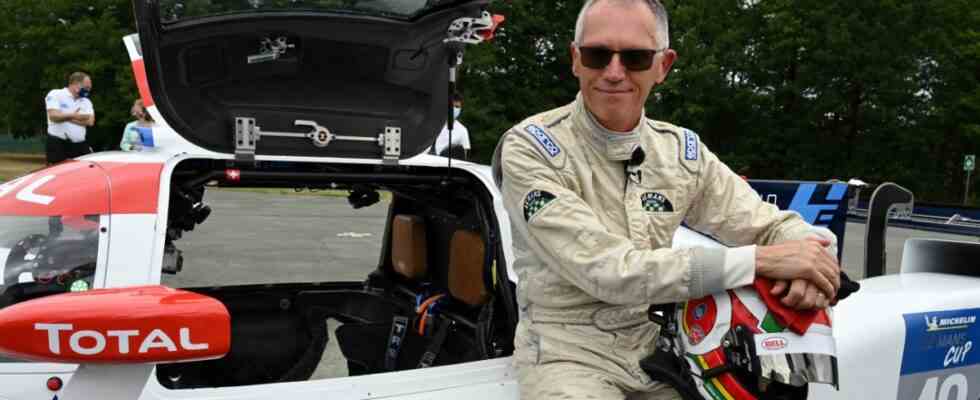You have to give Carlos Tavares one thing in any case: Even in times of great crisis, he does not lose his almost provocative confidence. The corona epidemic is not over yet, a war has broken out in Europe and of course the factories of Tavares’ Stellantis group are missing components, just like everyone else in the automotive industry. And finally, in the coming years, he still has to manage this massive transformation: Away from the combustion engine cars with manual transmission towards electric cars with a lot of software.
Many crises, great challenges. Is all this manageable for this company, which is so big, but still so young. Stellantis is – among others – Fiat, Chrysler, Peugeot, Citroen and Maserati, Alfa Romeo, Ram and Opel? Tavares’ answer, he says it with a smile, it’s so simple that it doesn’t need to be translated: “This company is a big cash machine!”
In fact, the numbers seem pretty decent as far as they’re already available. Even the formerly starving Opel brand is making money again: Yes, he is satisfied with the Rüsselsheim company, says Tavares, as well as above all with the American brands, which he puts in the foreground on this day.
The largest shareholder is the Italian Agnelli family
Tavares founded this group a year ago, behind which the Agnelli family is the strongest shareholder with a good 14 percent. Now he has invited to Amsterdam to present the plan for the coming years. “Dare Forward 2030” – and Stellantis dares to go forward, especially in the field of electromobility. Of course it’s all about electromobility, as indicated by the small electric two-seaters that are set up in front of the hall in the port area.
This group is also one of the car companies with a specific goal of phasing out combustion engines: In 2030, all new Stellantis cars in Europe should be battery-electric, in the USA at least half. In 2038, the entire group should be CO2-neutral and ideally mobility as a whole, according to the “Dare Forward 2030” concept. However, this is not just in the hands of Stellantis and the brands, adds Tavares.
It is a small reminiscence of his criticism, which he used to voice a lot out loud: Where does the green electricity come from for the required electric cars, Tavares had always asked more clearly than few others. And also said that mobility could become expensive, possibly too expensive for low earners. He still maintains this warning: Electric cars are still 40 percent more expensive to produce than petrol and diesel cars, the manager describes the situation. If in doubt, government subsidies will still be needed for a few more years. Because Stellantis does not want to finance the switch at the expense of its own financial success: by 2030 Stellantis wants to double its sales to 300 billion euros and continue to achieve double-digit returns.
Much is reminiscent of the Volkswagen strategy
This is reminiscent of “New Auto”, this plan with which the even larger German competitor, the Volkswagen Group, wants to become the leading manufacturer of electric robot cars with a lot of money. In fact, VW boss Herbert Diess is now not only looking very closely at Tesla and Chinese startups, but also at Stellantis: They are doing a good job and are becoming increasingly stronger. If you ask Tavares about his colleague Diess, then he talks about an inspiring business leader, for whom he feels “deep respect”, just as the VW group is a “benchmark”.
And yet so much is different at Stellantis. Miraculously, Tavares does not have the big conflict with the employees, although he is still a harder saver than Diess. It may be because Tavares has built a group around him that is based in the USA, Italy, France, the Netherlands and a bit in Rüsselsheim, which makes resistance complicated: As the boss of Peugeot and Citroen, he bought a few years ago Opel to do so. And then Fiat Chrysler.
Which management consultancy hatched this? “CT” is what people around him say: Carlos Tavares himself. The Portuguese has built up an unusual management system around him: 45 managers report directly to him, whom some in the group call the king of Stellantis. His VW colleague Diess should be jealous of this status – but then also refer to the different claims: Volkswagen wants to regain technological leadership in the car world as soon as possible.
One of the biggest tasks: A separate operating system for cars, VW is investing billions. Carlos Tavares, on the other hand: “I don’t make my own operating system, that’s no use.” Stellantis is still what is called “Fast Follower” in business: When in doubt, it’s better to be second to the latest technology hits than to burn a lot of money in the race for first place. On the one hand, this is consistent – but there are also managers in the history of the automobile who got cocky when they received a small crown.
But Tavares does not tend to be cocky. You have enough money, that’s not what decides the success of this 14-brand group, he emphasizes again and again that day. A survivor mindset is much more important: Investors are not only convinced by plans and concepts, but by the people who execute them.

